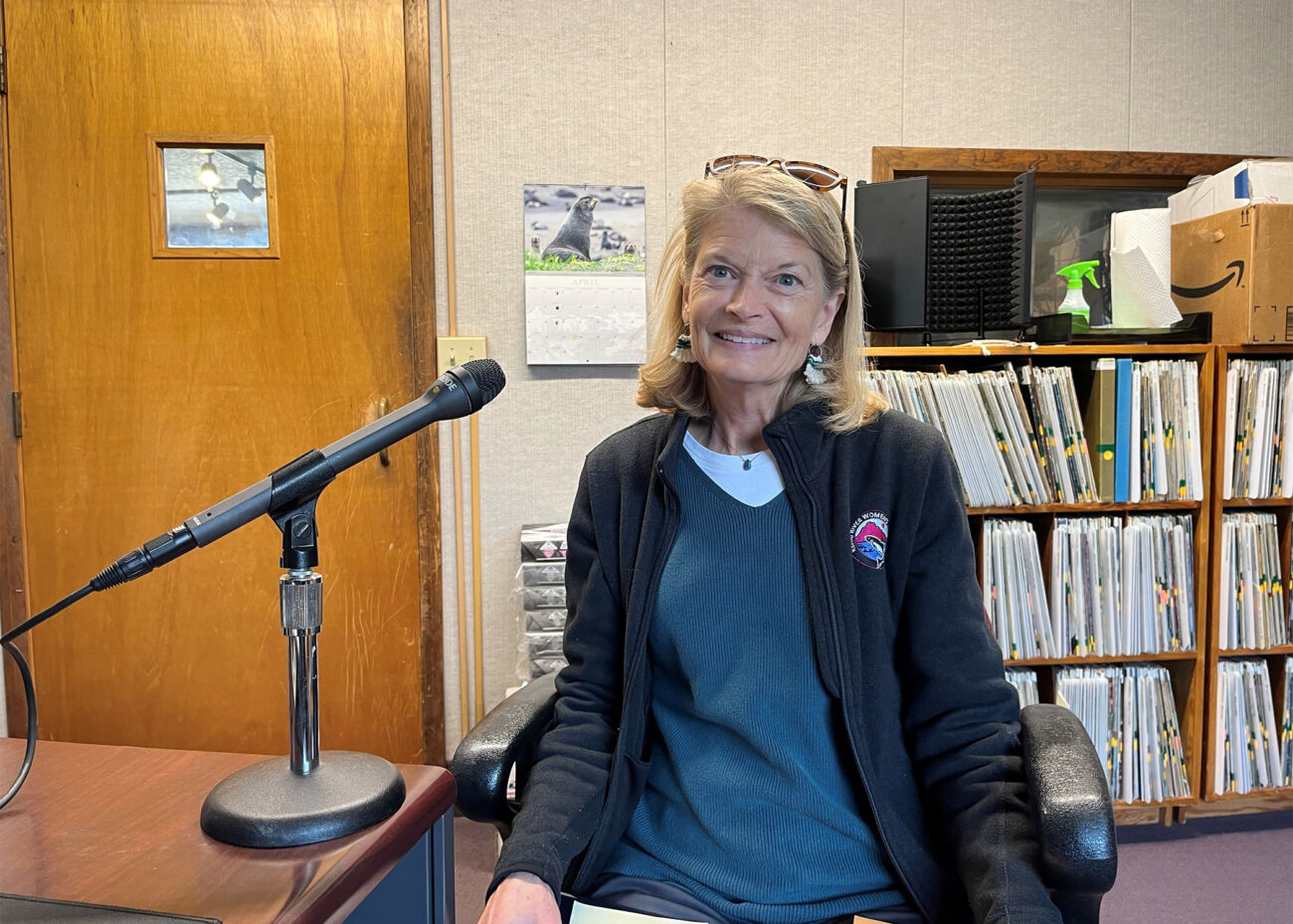
U.S. Senator Lisa Murkowski visited her mother in Wrangell over Mother’s Day weekend. During that trip she made a stop at KSTK.
She told KSTK that the Alaska Delegation is making progress on the landless legislation. The bill would amend the Alaska Native Claims Settlement Act to include Wrangell, Petersburg, Ketchikan, Haines and Tenakee Springs. Those five communities were left out when it became law in 1971. It prevents their tribal government from owning land and forming corporations.
Murkowski said the Delegation is working with the U.S. Forest Service to identify maps and parcels.
“I think we recognize that this is an issue that comes with its level of controversy because every acre of the Tongass is treasured by someone,” she said.
Murkowski said they’re continuing to work through the process and hope to finalize it by the end of the year. She said they’ve come a long way from the initial concerns by being more specific about federal land the communities could acquire with the mapping.
Local resources could decrease living costs
Additionally, Murkowski said she’s aware of the increased cost of living in Southeast Alaska communities. These include increased water rates, waste disposal rates and transportation costs from fuel to food. And people are leaving.
“I noticed just driving around just this afternoon, there’s a lot more for sale signs here than I’ve seen in many of the other communities that I’ve been in,” she said.
She attributed people selling their homes to the rising prices.
Murkowski said one huge barrier to staying in the area is the cost of energy. And she’s been focusing on ways to reduce energy costs in communities so they can have beneficial economic outputs.
“You’re blessed here in Southeast with hydro,” she said. “But what more do we need? We know that we’ve got work that we’ve got to do on the dam here. You cannot be a community that is limited by your water source, you just can’t.”
Wrangell gets most of its energy through the Southeast Alaska Power Agency, a utilities coalition that manages hydropower between Ketchikan, Wrangell and Petersburg. Last month, when a pole fire in Ketchikan happened, all three communities lost power. This happened because it caused both Tyee Lake and Swann Lake generators to go offline.
Murkowski said other communities in the region can build their own micro grids utilizing the energy assets they have, such as wind, instead of importing diesel to run generators.
She said Southeast needs to look at other resource development options because the region’s timber industry has declined and tourism is not year-round. She said there might be other resource opportunities like mining for critical minerals in the area.
After visiting Wrangell’s technology high school students during the trip, Murkowski said local economic opportunities are important to allow young people to stay in town.
Hazard reduction bills
Additionally, she said she and U.S. Senator Maria Cantwell from Washington are attempting to move hazard reduction bills. These will advance measures like landslide mitigation.
“It’s not only the landslide mitigation, but it’s earthquakes and tsunamis,” she said. “We’re trying to do all the upgrades to that.”
Murkowski said she hopes they’ll advance the bills through the Senate Commerce Committee relatively quickly.












